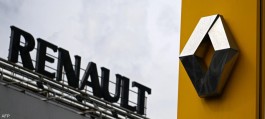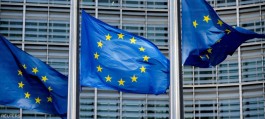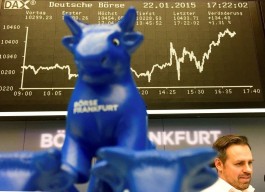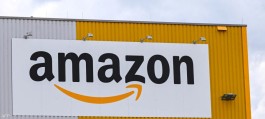Special Report
Done By Our Team
The digital age is at an accelerated pace, and the world is recording daily a new technological development that is making radical changes in all areas and affecting the way we manage ourselves and our business.
The e-commerce sector has grown and developed significantly, and has been able to reshape the modern market in recent years because of the short time and overcome geographical restrictions, and reduce costs and simplify and facilitate the sale and purchase online.
E-commerce opens new markets for business to investors, allowing them to develop a new business model geared to meet the needs of a growing customer base, especially those based on search engine optimization (SEO) to attract more free traffic to the site.
E-commerce facilitates company expansions, allows them to track logistics, and because of the interconnection between the supply chain and e-business systems, purchases become faster, cheaper and more transparent.
Fraud risks reduce consumer confidence
But this new form of trade is flawed - the inability to test the product before buying, and the risk of fraud and digital security in terms of credit cards.
When talking about costs, there are many regulations and taxes that come with the opening of an e-commerce store. The tax effects of e-commerce transactions are still unclear, which is particularly true when the seller and the buyer are in a different geographic location.
The consumer is concerned about the ease of delivery of goods, but logistical matters, especially in the Middle East and North Africa, place considerable pressure on the e-commerce process, making it an important element for profit and customer retention, but at the same time a challenge and administrative obstacle to be taken into consideration.
Growth opportunities in the Middle East and North Africa region
The e-commerce sector in the Middle East and North Africa (MENA) region is likely to grow tenfold from $ 20 billion in 2017 to more than $ 200 billion by 2020, according to the report.
The more the market grows, the more competitive the landscape becomes, and therefore the business must be distinguished in terms of product quality, customer service and loyalty.
In a study by Nielsen Marketing Research, 87% of consumers in the region were more likely to shop at retailers offering loyalty programs, while 42% of respondents said retailers offered some kind of loyalty program.
Promote loyalty with Block Qin bonuses
For a new e-commerce retailer, traditional loyalty programs - though rewarding - are expensive in terms of execution and maintenance, and do not suit the needs of customers.
In the traditional Loyalty program, customers log in and get points each time they shop, but the points are only earned when the card is used at the point of sale, which requires reminding and encouraging them to use the card.
With late access to points and the need to accumulate multiple points over a long period of time to obtain a decent reward, costs increase and recovery rates and inactive accounts decline.
Thus, Block Q's bonuses help reduce system management costs by using smart transaction contracts, which are transparent, follow-up and insurance without intermediaries' intervention, thereby reducing the potential costs of fraud or error.
The growing landscape of e-commerce in the Middle East and Africa provides tremendous potential for new business, but to grow and thrive you need to reward customers for their loyalty.
When mentioning the Middle East and North Africa, the role of the United Arab Emirates and Dubai in the e-commerce sector should be highlighted.
Which will strengthen the position of the UAE in the region
The UAE is the main bridge connecting the Middle East to the rest of the world and is a major hub for transportation across the world through Jebel Ali Port and Dubai International Airport (the world's sixth busiest airport), providing a high level of logistics and infrastructure for e-commerce.
The UAE ranked first in the Middle East and North Africa region and 17th in the world in terms of volume of e-commerce market, according to Fitch's global e-commerce index, with sales expected to reach $ 16 billion by 2019.
The agency estimates that e-commerce sales in the UAE will grow 23% annually between 2018 and 2022, reaching $ 16 billion in 2019 and then $ 27.1 billion by 2022, the highest level of e-sales in the region. E-procurement, with 49.6% of adults buying online, according to World Bank data.
Dubai incubator for e-commerce projects and initiatives
Today, Dubai is leading e-commerce in the region, as well as its share of air freight activity among air carriers in the region. The emirate's efforts in this area are reflected in the launch of the Dubai Blink Initiative, a smart e-commerce platform between companies, And will change the future of global commercial supply chains by creating a new global trading platform
Free Zone Companies.
Dubai South today aims to pump 2 billion dirhams ($ 545 million) to build a free e-commerce city called Easy Dubai on an area of 920,000 square meters, allowing foreign companies full ownership.
Dubai is an incubator of the region's most important e-commerce platforms, such as Souq.com.com.






































